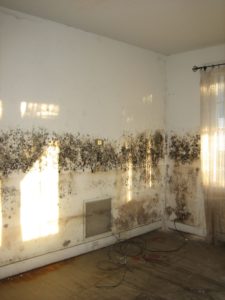 Make sure your mold remediation expert is truly an expert.
Make sure your mold remediation expert is truly an expert.
So the bad news is that you think you need the services of a mold remediation expert. The good news it that you have the presence of mind to make sure you hire somebody who truly is an expert. Some have called mold remediation “the Wild West of home improvement” because the field is largely unregulated, allowing nearly anyone to declare himself an expert and to diagnose practically anything as mold.
What does a mold remediation expert look like?
The LSU Ag Center stresses that hiring a well-trained, professional mold remediation contractor is typically a safer, better alternative than a do-it-yourself approach. But what exactly does a bonafide “well-trained professional mold remediation expert” look like?
According to the Louisiana Home Builders Association, a licensed mold remediator must meet the following requirements:
- successful completion of high school or its equivalent
- 18 years of age
- 24 hours of training in mold remediation and basic mold assessment
- four hours training in unfair trade practices
- workers’ compensation and general liability insurance in a minimum amount of $50,000
- A single licensee cannot perform both mold assessment and mold remediation on the same property.
- No person can own an interest in both a mold assessment and a remediation business.
Don’t be afraid to ask the right questions to ensure that the contractor you’re considering meets these requirements.
Expect more than just the basics.
Any mold remediator worth his salt won’t start remediation until he’s sure that the mold has been clearly and properly identified and assessed via a visual inspection of the entire building, outside and inside, paying special attention to at-risk areas for potentially hidden mold presence. He’ll likely also want to review the building’s leak and flood history and ensure that pre-testing is done to identify the type and concentration of mold in your home.
Mold testing is vital to getting what you pay for.
Mold tests compare the inside air quality with outside air quality. Mold is measured in number of spores per meter cubed, and you can have up to one million spores per meter cubed. In Louisiana, most results have typically fallen between zero spores and 600,000 spores per meter cubed. The higher the number, the more contaminated the property. Accurate testing both before and after remediation, preferably by a professional with highly specialized equipment, is the only way to determine if the remediation is indeed effective. Air testing to identify the type and concentration of mold is used by most professionals.
What will a good remediator do for me?
Once the problem has been confirmed, the remediator should advise you about the origin(s) and location(s) of the mold, the magnitude of the problem, and the procedures, equipment and tools required for effective cleanup and removal.
Once you feel confident that you’ve found the right mold remediator, the LSU Ag Center says that you should expect them to address your mold problem by doing the following:
- removing and disposing of moldy materials
- cleaning restorable materials by damp wiping with a cleaning solution and using a HEPA-filtered vacuum
- cleaning certain materials with detergent and bleach solution, using gamma ray irradiation, steam cleaning, blasting with sodium bicarbonate (baking soda) — or tenting the building and filling it with chlorine dioxide gas to kill mold without gutting or discarding materials.
Safety matters.
LSU notes that these removal and cleaning methods are designed to contain and safely remove both live and dead mold, since exposure to dead mold fragments and spores can have the same health effects as live mold. Be aware that mold cleanup requires specialized equipment and specific protocols to reduce mold exposure. A good mold remediator will wear protective clothing, an appropriate respirator, and eye protection, and will follow procedures to minimize the release and spread of mold spores. If a remediator shows up at your home or business without all this, you should send him packing.
Prevention
After your mold remediation, steps can be taken to protect your home from unwanted moisture problems in the future. Going through a clean up, it is prudent to take the necessary steps to prevent this from occuring again. Closed cell spray foam insulation is the product that protects your home from moisture. Sunlight Contractors is a certified spray foam installer. Not only will you have your mold remediated, but you will have this certified contractor prevent future problems.
CALL TODAY!
No other energy solutions provider can offer the savings and services that Sunlight Contractor does. Call or email Sunlight Contractors today to learn more about mold solutions that will save your business money and create a healthier environment.
Locations:
Main Office: Sunlight Contractors, LLC 2323 Bainbridge St #110, Kenner, LA 70062 (504) 919-9993
New Orleans location: Sunlight Contractors, LLC 650 Poydras St, Suite 1400, Rm 33, New Orleans, LA 70130 (504) 302-0058
Proudly Serving the following areas:
[wpgmza id=”2″]
We provide service to the following areas: New Orleans, Baton Rouge, Metairie, Slidell, Kenner, and surrounding areas including Marrero, Harvey, Mandeville, LaPlace, Covington, Gretna, Destrehan, Lacombe, Saint Rose, Madisonville, Norco, and more.

